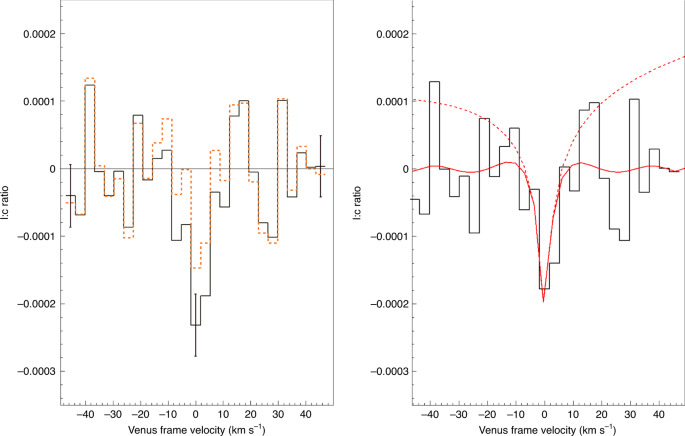so this is lit as shit. theyre saying there is a source of PH3 in the atmosphere of venus, an atmosphere which rarely has any sort of bond containing hydrogen. this implies it could be life.
however, they also mentioned it appearing near the equator. and that made me remember some articles about phosphine in comets and some others about how asteroids tend to hit our equator more. how much yall wanna reckon a giant comet hit that motherfucker many years back and had ph3 in it? they say that the phosphine would deplete in 10^3 years if it is not renewed, i didnt see any info on whether the concentration changed in their year of observation
here's their bit on anomalous events, which doesnt seem to mention asteroids or comets:
Energetic events are also not an effective route to making PH3. Lightning may occur on Venus, but at sub-Earth activity levels33. We find that PH3 production by Venusian lightning would fall short of few-ppb abundance by factors of 107 or more. Similarly, there would need to be >200 times as much volcanic activity on Venus as on Earth to inject enough PH3 into the atmosphere (up to ~108 times, depending on assumptions about mantle rock chemistry). Orbiter topographical studies have suggested there are not many large, active, volcanic hotspots on Venus34. Meteoritic delivery adds at most a few tonnes of phosphorus per year (for Earth-like accretion of meteorites). Exotic processes such as large-scale tribochemical (frictional) processes and solar wind protons also only generate PH3 in negligible quantities (W. Bains et al., manuscript in preparation, submitted to Astrobiology as ‘Phosphine on Venus cannot be explained by conventional processes'; also see Extended Data Fig. 10).
i do like that theyre going for the gold and asking for a new visit to venus and some new telescopes though.


It's kinda sad that the last time humanity actually went to Venus to explore it was in the 80s (courtesy of the USSR of course). I'm excited for this too, I personally doubt the presence of life. If anything we might've accidentally seeded it with some weird-ass archaea somehow rather than it being novel life that evolved separately.
How fast the partial pressure of PH3 decreases depends on the rate constant of decomposition. I'm sure it exists in literature at the same or near the same ph and temp that is present on Venus. I tried to look through quickly on google, looks like it's a first order reaction. If it's first order than it very quickly depletes and then peters off (on a ln[conc]/time graph it would be a straight line). If a comet hit it some time ago and seeded a bunch of PH3, then we'd be seeing the tail end of the concentration and it might not change all that much over a couple days. It could be concievable some comet hit it 800 years ago or something, deposited a shitload of PH3, and we're only now seeing it finally die away - I wonder if there's any anthropological stuff in the middle ages about a comet striking Venus?